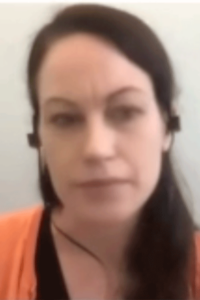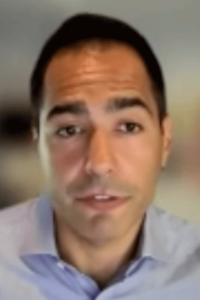
Four researchers looked at the connections between insulin and cancer during the Scientific Sessions symposium Insulin as a Driver of Cancer, which can be viewed by registered meeting attendees at ADA2021.org through September 29, 2021. If you haven’t registered for the Virtual 81st Scientific Sessions, register today to access all of the valuable meeting content.
Emily J. Gallagher, MD, PhD, MRCPI, Icahn School of Medicine at Mount Sinai, reviewed the epidemiology of diabetes, obesity, and cancer during the session, which was originally presented Tuesday, June 29, as well as the mechanisms of insulin and insulin receptor signaling.
Targeted cancer therapies can lead to metabolic side effects, including obesity, hyperinsulinemia, and hyperglycemia, said Dr. Gallagher, adding that there are metabolic-adverse effects of various cancer therapies that may contribute to cancer treatment resistance. Additional research is needed to find therapeutics that can treat hyperinsulinemia in receptor signaling in cancer while not altering metabolism, she continued.
“Obesity and diabetes are associated with an increased risk of a number of cancers, and hyperinsulinemia and insulin receptor pathway signaling are important mechanisms contributing to cancer growth and progression, and may explain part of the racial disparities in outcomes,” Dr. Gallagher said.

M. Celeste Simon, PhD, University of Pennsylvania Perelman School of Medicine, examined the role of systemic metabolism in shaping tumor development. She said the protein-coating gene HSD3B7 is overexpressed in renal cancers. Silencing HSD3B7 results in decreased proliferation and death in vitro and in vivo, demonstrating how cholesterol homeostasis is essential for these tumor cells.
Dr. Simon noted that investigations by her and her colleagues show that high-density lipoprotein (HDL) cholesterol passes through the scavenger receptor class B member 1 (SCARB1) channel, helping sustain AKT signaling. Inhibiting AKT signaling stops cell proliferation, she explained.
Researchers suspect SCARB1 import of HDL cholesterol engages other key intracellular pathways. Dr. Simon said available drugs that target SCARB1 not only affect tumor cell growth but inhibit efflux of cholesterol by the same transporter.
“And it’s known that cholesterol accumulation in the interstitial space can actually result in T cell exhaustion, so we think that this means of treating the renal cancers will shrink the tumors,” Dr. Simon said. It may also have productive effects on the immune microenvironment, she added.

Lydia Finley, PhD, Cell Biology Program, Memorial Sloan Kettering Cancer Center, explained how metabolites help establish and sustain malignant states. Dr. Finley’s lab studies metabolic alterations that accompany cell fate decisions. Understanding the changes that come from the generation of specific cell types, her lab hypothesizes, might allow researchers to create strategies to favor the generation of cells with desired properties, or to select against cells with undesirable properties.
Dr. Finley’s presentation included a review of research into pancreatic cancer. Investigators used mouse models to determine if they could model the cell fate switch from pancreatic intraepithelial neoplasia to pancreatic ductal adenocarcinoma. Researchers were able to show that the tumors created by genetic engineering of mutant renin angiotensin system (RAS) and heparin against p53 genes could be overridden by a metabolic change alone.
“I think that offers some optimism that the state can be reversed by metabolic or other interventions that activate latent tumor suppressive pathways that induce differentiation,” Dr. Finley said.

Marcus Goncalves, MD, MSE, PhD, Division of Endocrinology, Meyer Cancer Center, Weill Cornell Medical Center, discussed diet’s role in oncogenesis and cancer treatment. Obesity, inflammation, and insulin resistance can drive tumor growth, he said, while fats, carbohydrates, and sugars can feed the tumor by providing additional substrates for growth.
There are a host of dietary strategies, but Dr. Goncalves noted the need to develop more targeted, disease-specific interventions. For example, investigations have shown that combining phosphoinositide 3-kinases inhibitors with a ketogenic diet blocked endometrial cancer in mice, he said.
“One day, I hope we reach the point where we can prescribe diets much like we prescribe anti-cancer therapy, using algorithms where the tumor tissue type is designated and then do additional molecular analysis on these tumors, identifying gene mutations or deletions,” Dr. Goncalves said. “Or the patient is prescribed a certain type of anti-cancer therapy, or there are host factors, then we prescribe a diet to augment these factors in order to complement the anti-cancer therapy.”
VIEW THIS PRESENTATION
Already registered?
View this presentation at ADA2021.org
Not yet registered?
Register now to access all presentations from the Virtual 81st Scientific Sessions

